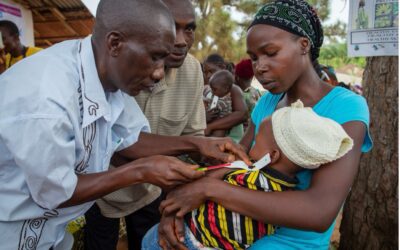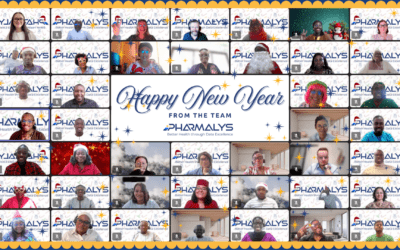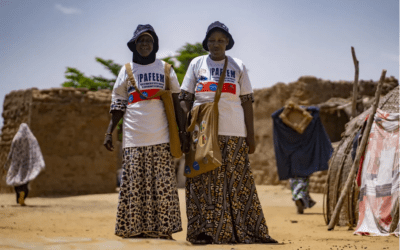Access to safe and effective medicines is a cornerstone of modern healthcare. Yet, not everyone enjoys equal benefit from the advancements in pharmaceutical research and innovation. Pharmacoequity is the principle that every individual, regardless of race, ethnicity, gender, or socioeconomic status, should have access to medicines that have been thoroughly tested in diverse populations and proven to be effective and safe.
Coined in 2021 by Dr. Utibe Essien, a physician and health disparities researcher, pharmacoequity captures an urgent truth: too many patients are left behind by systems that fail to account for the differences in how diseases manifest and respond to treatment across various groups. Inclusive drug development and equitable access to medicines are essential, not optional, in building a healthcare system that serves everyone fairly.
A Persistent Lack of Representation
Despite growing awareness, clinical trials still largely fail to reflect the populations most affected by the conditions being studied. According to the FDA’s 2023 Drug Trials Snapshot Summary Report, over half of all participants in most trials were white, with female participation ranging from 41% to 67% – mostly white women. Groups including Black, Hispanic/Latino, and Asian patients continue to be significantly underrepresented in trials for diseases like cancer, heart failure, HIV/AIDS, and Alzheimer’s, conditions that often disproportionately affect these communities.
This underrepresentation matters deeply. Without representative data, treatment guidelines, and safety profiles, prescribing practices may not be appropriate or effective for all patient groups. Real-world access to medication and trust in the system suffer as a result.
Real Consequences for Patients and Progress
A striking example is the development of Benlysta® (belimumab), a human monoclonal antibody against systemic lupus erythematosus. When FDA approved it in 2011, it was the first new drug for lupus in more than five decades. However, its clinical trials included very few Black participants, even though Black patients (particularly women) are significantly more likely to develop severe lupus. The lack of representative data led to questions about whether the benefits seen in the trial could be generalised to the wider, real-world population. The implications were not only clinical but commercial, affecting uptake and revenue due to uncertainty around effectiveness in key patient groups.
This isn’t an isolated issue. A review of multiple drug development programmes reveals a similar pattern: a narrow participant base leading to limited data, restricted access, and preventable health inequalities.
Inclusive Drug Development as a Business and Ethical Imperative
To advance pharmacoequity, the pharmaceutical industry must embed inclusivity in the foundations of drug development. This involves designing trials that actively recruit from diverse populations, especially those disproportionately affected by the condition in question. This approach, known as inclusive drug development, produces data that truly reflects the real-world users of a treatment.
It is also vital to adopt population-informed access strategies. Population-informed access means ensuring that access to innovative medicines is guided by a robust understanding of the drug’s safety and efficacy profiles, specifically within populations who will ultimately use it. Without representative data, access (including reimbursement and formulary placement) may lead to underuse, mistrust, or even harm, especially among communities that already carry a heavy disease burden.
Tackling Structural Barriers
Pharmacoequity extends beyond who is included in a clinical trial. It also involves addressing the broader issues that limit access to treatment. These include affordability, disparities in insurance coverage, pharmacy deserts in underserved areas, and implicit biases that influence prescribing behaviours. Research has shown that non-white and lower-income patients are less likely to receive both newer therapies and commonly prescribed generics. They also tend to receive less preventive care and emergency treatments, worsening already poor health outcomes.
In addition, systemic economic disparities, such as the racial wealth gap, compound these issues, making it harder for some groups to afford necessary medicines even when they are available.
A Call to Action
Pharmacoequity is not just a matter of fairness; it is a matter of life and death. When drug development fails to include the very populations most affected by disease, the consequences are wide-ranging, from missed opportunities in patient outcomes to poor trust in healthcare systems and diminished commercial success.
At Pharmalys, we believe that achieving pharmacoequity is a shared responsibility. Policymakers, regulators, healthcare providers, and, crucially, the biopharmaceutical industry must work together to embed inclusivity, transparency, and accountability into every stage of the drug development and delivery process.
Pharmacoequity is not an aspiration, it must become standard practice by committing to representative research, addressing systemic access barriers, and ensuring that innovative treatments reach all those who need them.
From WOCIP white paper 2025; Transforming Drug Development. www.wocip.org











